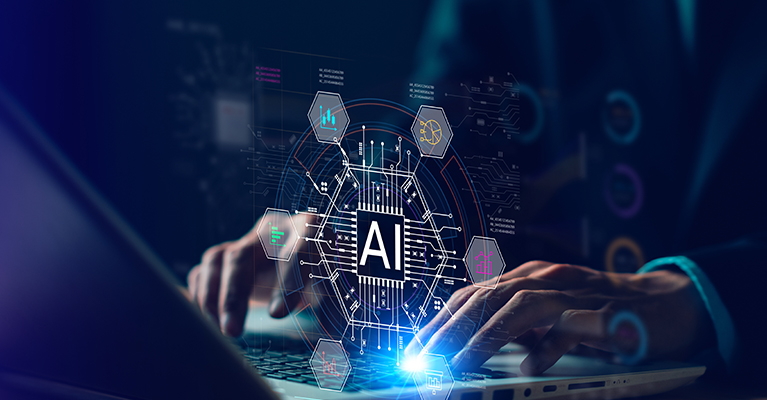Latest Blogs
Lexis+ AI™︎ VS ChatGPT: A Legal Perspective
Summary: Primary and Secondary Law Security, Privacy, and Trust Access to Authoritative Content Evidence Supported by Canadian Case Law Navigate Unfamiliar Issues Take Legal Action Quantum...
LexisNexis®︎ Canada Leads the Way in Development of Legal AI...
C anadian legal professionals have been on the leading edge of adopting generative artificial intelligence (Gen AI) technology. A LexisNexis® Canada Inc. survey found that 93% of Canadian lawyers are aware...
9 Reasons Why Canadian Law Firms Should Embrace Legal AI in ...
Canadian businesses and professionals have been eager to explore the possibilities of generative artificial intelligence (Gen AI) technology, but adoption rates need to accelerate in 2025 for Canada to...
Grades are in: Canadian law students give positive reviews on...
All Canadian law students received access to Lexis+ AI on January 7, 2025. Since then, they have initiated over 18,000 Lexis+ AI sessions and usage has increased steadily week to week. Here is what Canadian...
Responsible AI Innovation: The LexisNexis Commitment to a Principled...
The emergence of generative AI (Gen AI) tools represents an exciting breakthrough for the legal industry . However , i t’s crucial to approach this new technology with appropriate caution . Just as lawyers...

The emergence of generative AI (Gen AI) tools represents an exciting breakthrough for the legal industry. However, it’s crucial to approach this new technology with appropriate caution. Just as lawyers oversee the work of summer associates or paralegals, Gen AI outputs cannot be relied upon without proper oversight by lawyer.
One way to mitigate the risks of relying on generative AI (Gen AI) outputs is to ensure you are using a legal AI tool specifically trained for the legal profession. Legal AI tools should be grounded in authoritative legal content and developed according to “Responsible AI” principles.
“Responsible AI" refers to an approach for developing and deploying artificial intelligence ethically and legally, according to the International Organization for Standardization. The goal is to employ AI in a safe, trustworthy, and ethical manner that increases transparency while mitigating issues like AI bias.
Mitigating Risks with Responsible AI
Responsible AI goes beyond just doing the right thing — it serves as an important risk management safeguard. Adopting a Responsible AI framework for legal AI tools helps increase confidence that the solution will avoid potential reputational and financial risks to a law firm down the line.
Here are five keys to the responsible development of a Legal AI tool, drawn from the Responsible AI Principles at RELX, the parent company of LexisNexis® :
Be Able to Explain How the Solution Works
The AI tool should have an appropriate level of transparency for each application and use case to ensure that different users can understand and trust the output. Prevent the creation or reinforcement of unfair bias Mathematical accuracy doesn’t guarantee freedom from bias, so the AI should be developed with procedures, extensive review and documentation processes.
Accountability Through Human Oversight
Humans must have ownership and accountability over the development, use and outcomes of AI systems. This requires an appropriate level of human oversight throughout the lifecycle of development and deployment.
Respect Privacy and Champion Data Governance
The AI tool should be developed with robust data management and security policies and procedures, ensuring that personal information is handled in accordance with all applicable privacy laws and regulations. For example, LexisNexis has made data security and privacy for customers a priority by opting out of certain Microsoft® AI monitoring features to ensure OpenAI cannot access or retain confidential customer data.
Consider the Real-World Impact on People
When developing new AI technology like generative AI tools, it’s critical to first reflect on the sphere of influence and potential impacts.
LexisNexis has been an industry leader in responsibly developing trustworthy AI tools for years. Their experience started with extractive AI models using machine learning techniques and has now advanced to transformational generative AI technology with their breakthrough Lexis+ AITM solution. This involves thoroughly vetting potential impacts, stakeholders, and use cases before deploying new AI capabilities to ensure they are built and applied responsibly within the appropriate domain.
Lexis+ AI is a legal AI platform built on a framework of ethical and responsible AI principles. It leverages the authoritative LexisNexis legal content repository to ground outputs in accurate sources like case law and statutes. Lexis+ AI uniquely provides linked citations in responses for transparency.
The innovative solution offers conversational search, summarization, intelligent drafting assistance, and document analysis — all in a seamless user experience. Lexis+ AI supports ethical Gen AI adoption for legal professionals through its principled approach and legal domain expertise.
Learn more about how Lexis+ AI can drive better legal outcomes.